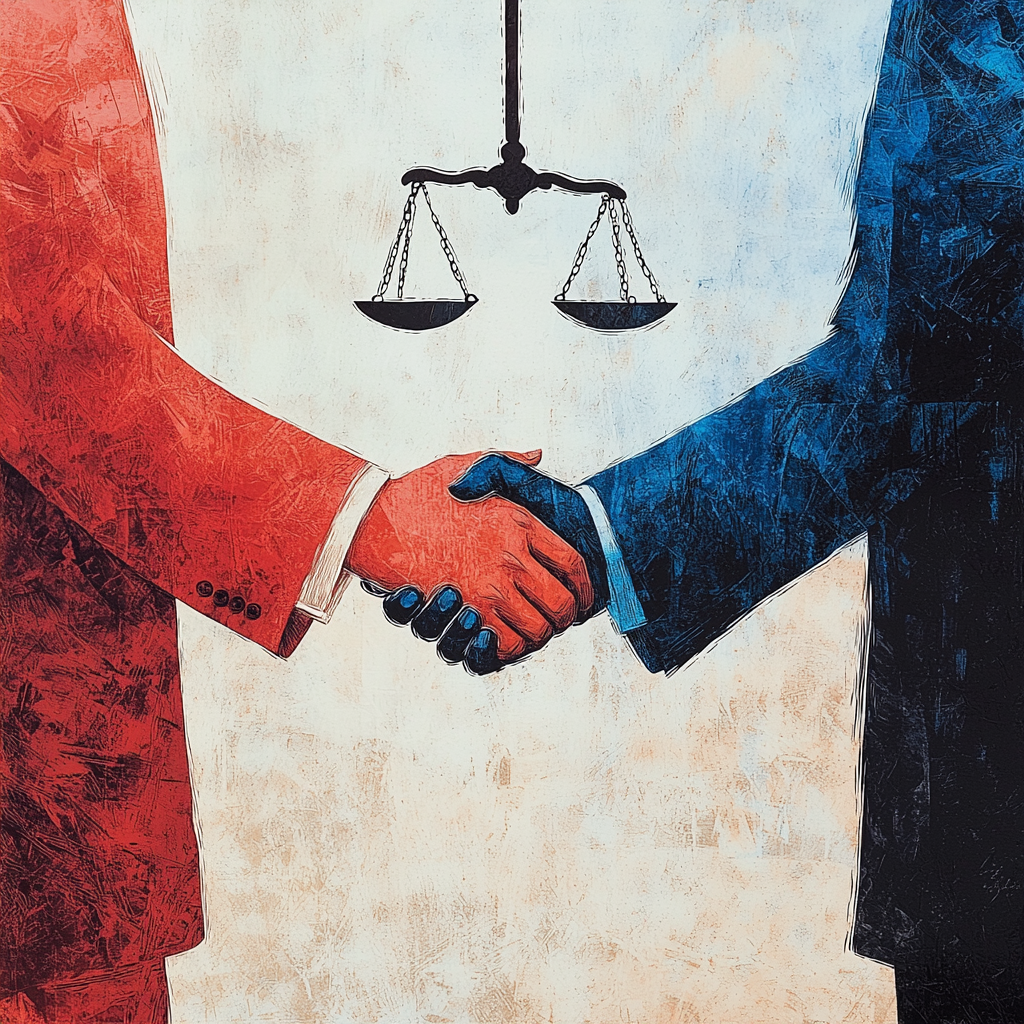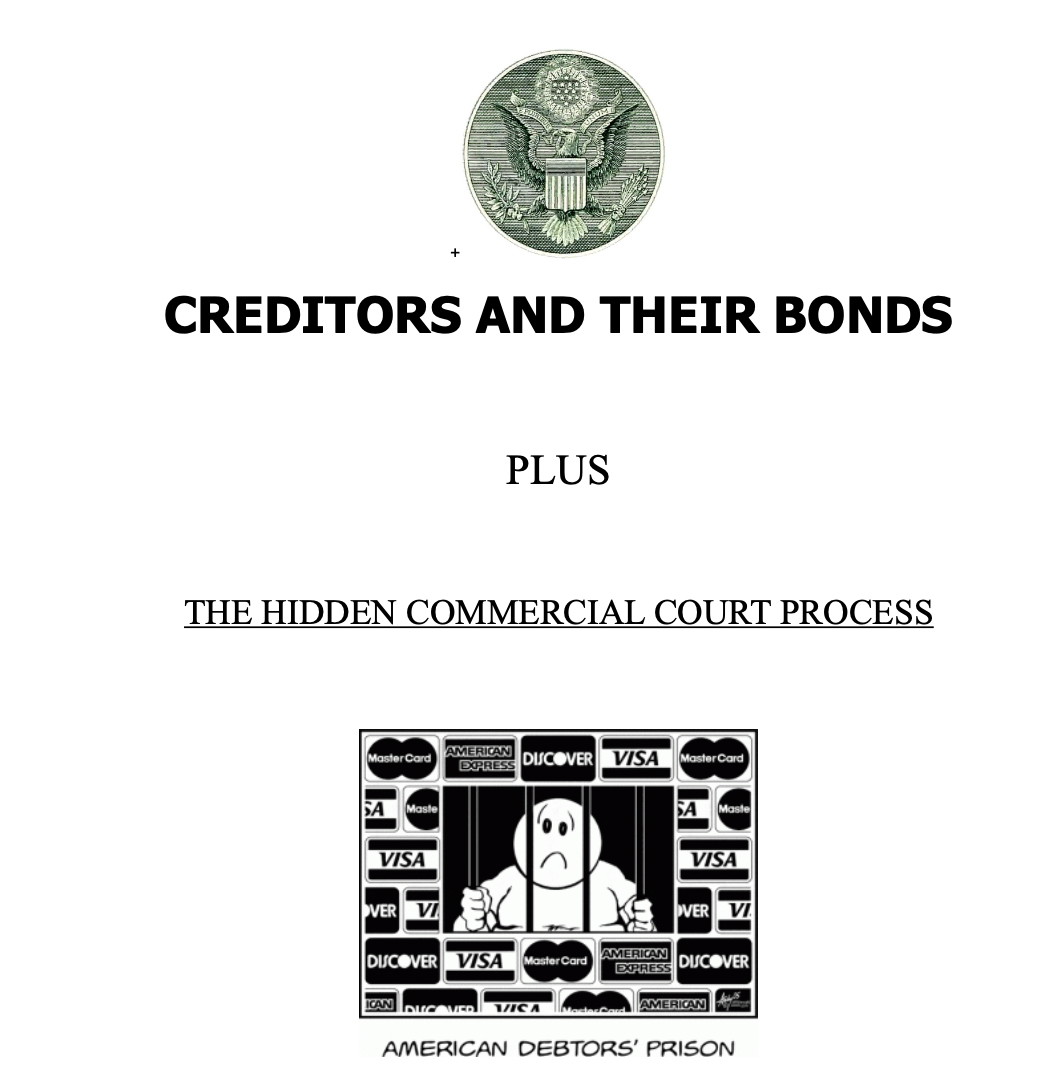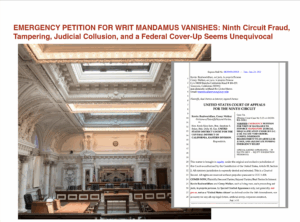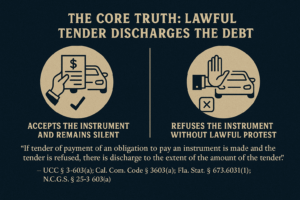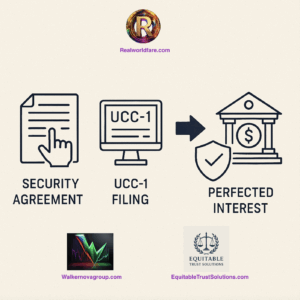There is a little-known connection between crime and “commercial” law that often goes unnoticed by the general public but is strategically exploited within the legal and financial systems. The concept that all crimes are, in essence, “commercial” unveils a hidden truth about how criminal acts are tied to the Uniform Commercial Code (UCC). This revelation suggests that most, if not all, crimes are treated as breaches of “commercial” contracts or infringements upon the state’s financial interests. Most private citizens are unaware of this dynamic, leaving them vulnerable to a legal system that uses “commercial” principles against them, profiting off their lack of education.
What Is a “Commercial” Crime?
The term “commercial” crime encompasses a wide range of offenses that are technically tied to commerce, whether explicitly or not. According to federal definitions:
“Commercial crimes. Any of the following types of crimes (Federal or State): Offenses against the revenue laws; burglary; counterfeiting; forgery; kidnapping; larceny; robbery; illegal sale or possession of deadly weapons; prostitution (including soliciting, procuring, pandering, white slaving, keeping house of ill fame, and like offenses); extortion; swindling and confidence games; and attempting to commit, conspiring to commit, or compounding any of the foregoing crimes. Addiction to narcotic drugs and use of marihuana will be treated as if such were commercial crime.” See 27 CFR § 72.11 – Meaning of terms.
These crimes, while varied, share a fundamental aspect: they all represent some form of violation of commerce, whether it’s through fraud, theft, or illegal activity that disrupts the state’s financial interests. Even offenses such as addiction to narcotic drugs and the use of marijuana are treated as “commercial” crimes under this broad definition, highlighting the far-reaching scope of “commercial” law in the justice system.
The Hidden “Commercial” Nature of All Crimes:
Every crime, from theft to fraud, can be viewed as an infringement on the state’s “commercial” interests. For example, when someone commits theft, robbery, or fraud, they are depriving either private individuals, corporations, or the state of their property or financial resources, which translates to a “commercial” loss. Under this system, the state steps in not merely to enforce justice, but also to recover its lost “commercial” value.
Legal scholars and researchers point out that every offense is prosecuted as a breach of the public peace, which is fundamentally linked to the state’s authority over commerce. This is why all criminal activity can be viewed through the lens of “commercial” law.
The UCC and Its Role in “Commercial” Criminal Cases:
The **Uniform Commercial Code (UCC), designed to regulate “commercial” transactions, governs contracts and trade between individuals and corporations. However, over time, its principles have stealthily seeped into the **criminal justice system**. The prosecution of alleged crimes is increasingly treated as an infringement on the state’s “commercial” interests.
For instance, when someone is arrested, a series of **bonds and “commercial” papers** are issued to represent the financial value of their alleged crime. These “commercial” bonds are often traded within financial markets, making **criminal prosecution a “commercial” transaction** in which the accused is unknowingly a party. Individuals charged with crimes unknowingly enter into contracts with the state, which capitalizes on this legal framework for financial gain.
Fines, penalties, and other forms of restitution imposed upon criminals are seen as **”commercial” penalties**, reflecting the state’s need to recover its financial losses. Imprisonment, fines, and other punishments are forms of repayment for what the state interprets as breaches of “commercial” law. The UCC thus operates behind the scenes, regulating the legal system in ways that most individuals do not realize.
Lack of Education: How Citizens Are Taken Advantage Of:
Most private citizens are unaware of the “commercial” framework behind the criminal justice system. The assumption is that crimes are prosecuted as moral offenses or breaches of public safety. In reality, the legal system treats all criminal cases as **”commercial” disputes** involving violations of the state’s financial interests.
This lack of education leaves private citizens vulnerable. From the moment someone is arrested, they are issued legal documents such as citations or summonses, which represent **”commercial” offers**. If a person does not respond correctly or assert their rights in the right context, the state interprets this as **implied consent** under **contract law**. By failing to recognize this hidden “commercial” aspect of their interactions with the legal system, individuals unknowingly forfeit their rights and submit to the state’s jurisdiction.
The **Uniform Commercial Code** and principles of “commercial” law operate on the notion of consent. When citizens do not contest these legal processes, the state assumes they have agreed to the terms. This makes it easier for the system to penalize them financially or impose further restrictions. Fines, court costs, and other fees act as “commercial” penalties designed to recover financial damages. The state benefits from citizens’ ignorance of these processes, turning every alleged crime into a “commercial” transaction.
The Concept of “Commercial” Crimes and Justice:
The concept of “commercial” crimes** ties directly into the UCC and “commercial” law principles. By treating criminal activity as a breach of the state’s “commercial” interests, the legal system is able to generate financial gain through the imposition of fines, bonds, and other forms of debt upon accused individuals.
In essence, every citizen is expected to be aware of their rights and responsibilities under “commercial” law. However, the general population is not taught these concepts, leaving them susceptible to being processed through a “commercial” system that prioritizes financial interests over justice. The state essentially treats every individual as a **corporate entity** whose actions are tied to “commerce”—whether they realize it or not.
Conclusion: The Urgent Need for Education on “Commercial” Law:
The secret connection between crimes and “commercial” law is one of the best-kept secrets in the modern legal system. Most private citizens do not realize that their interactions with the justice system are governed by **”commercial” principles**, and that all alleged crimes are treated as “commercial” disputes.
Without proper education, citizens will continue to be taken advantage of by the system. They unknowingly consent to the **jurisdiction** of “commercial” courts and forfeiture of their rights by failing to recognize the significance of “commercial” law in their cases.
It is time for private citizens to become educated on these **hidden “commercial” laws** and assert their rights before they are manipulated by the very system designed to govern “commerce.” Understanding the “commercial” nature of crime will help individuals challenge the system and regain control over their personal sovereignty.

